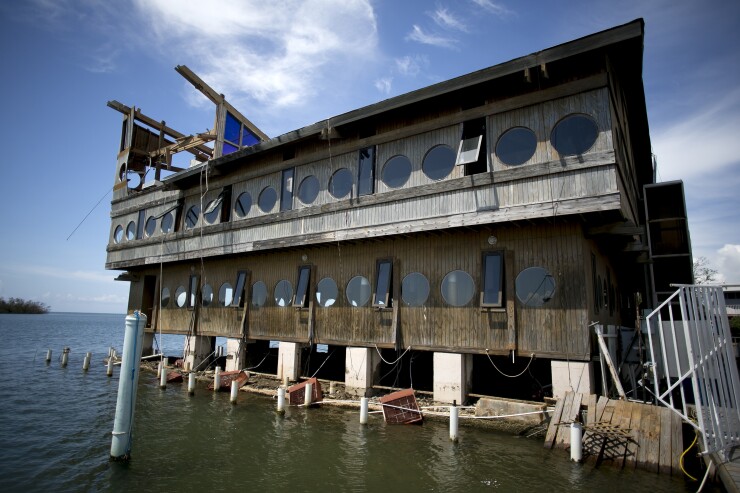
WASHINGTON – Efforts by congressional Republicans to enact tax reform have gotten more complicated as some conservative lawmakers are balking at the new disaster spending.
“Overall, it is an additional complicating factor,” Matthew Cutts, a partner at the Washington office of Squire Patton Boggs, said in an interview.
Cutts, who follows federal policy as chair of his firm’s tax and financial services policy group, said congressional budget hawks already had concerns about a tax reform package that would add to the deficit.
“Having to spend money on disaster relief makes them even more leery of an unpaid-for tax plan,” Cutts said.
There were 69 Republican no votes Thursday on the $36.5 billion package of disaster aid the House approved for the U.S. Caribbean, Texas, Florida and California. Most of those no votes came from members of the conservative House Freedom Caucus.
The Senate is expected to take up disaster relief and tax reform in the coming week, when members return from week-long recess. Municipal bond market experts are closely monitoring the developments because the federal disaster aid is vital to the fiscal future of the affected states and territories.
Tax reform also could have a major impact on bonds if the lower tax rates envisioned by Republicans make municipal bonds less attractive to investors. The proposed elimination of the federal deduction for state and local governments also could lead for a drop in home values and local property tax revenues.

Rep. Mark Meadows, R-N.C., the caucus’s chairman, has said he’s hopeful the House and Senate can compromise on a 2018 budget resolution that would clear a path for tax reform.
The House budget resolution for the 2018 fiscal year that started Oct.1 envisions putting the federal government on a 10-year path to a balanced budget in conjunction with tax reform.
To get to that objective, the House Republican plan calls for cuts in entitlements such as Medicare and Medicaid as well as discretionary spending.
The Senate budget resolution for the 2018 fiscal year has not yet received a floor vote. Its language as approved by the Senate Budget Committee allows $1.5 trillion in new deficit spending over the next decade to help finance tax reform.
Howard Gleckman , a senior fellow in the Tax Policy Center in Washington, doesn’t think concerns about new deficit spending on items such as disaster aid will stop the push for tax cuts.
“Obviously there is a group of self-described deficit hawks in the House who are opposed to any new spending, but it doesn’t seem to apply to taxes,” Gleckman said.
Gleckman thinks “tax cuts are not going to be budget neutral and they are not going to finance it with cuts in mandatory spending.”
The Senate’s failure come up with the votes needed to repeal the Affordable Care Act served as evidence that the Senate won't enact significant cuts to the Medicaid health care program for low-income households, Gleckman said.
Emergency supplemental spending bills for natural disasters often are treated outside the normal budget so Congress might ignore how the hurricane and wildfire assistance impacts the deficit.
The Committee for a Responsible Federal Budget plans to release recommendations soon on budget cuts that could be used to offset the cost of hurricane and wildfire disaster aid.
“Disasters are increasing in cost and frequency and I don’t see how we can keep adding these costs to the credit card and expect future generations can pay for them,” said Marc Goldwein, senior vice president and senior policy director of the Committee for a Responsible Federal Budget.
Goldwein said his organization supports tax reform, but only if it’s revenue neutral.
“We benefit from tax reform, but what we can’t afford is tax cuts,” Goldwein said. “We probably need to have tax increases and spending cuts.”





